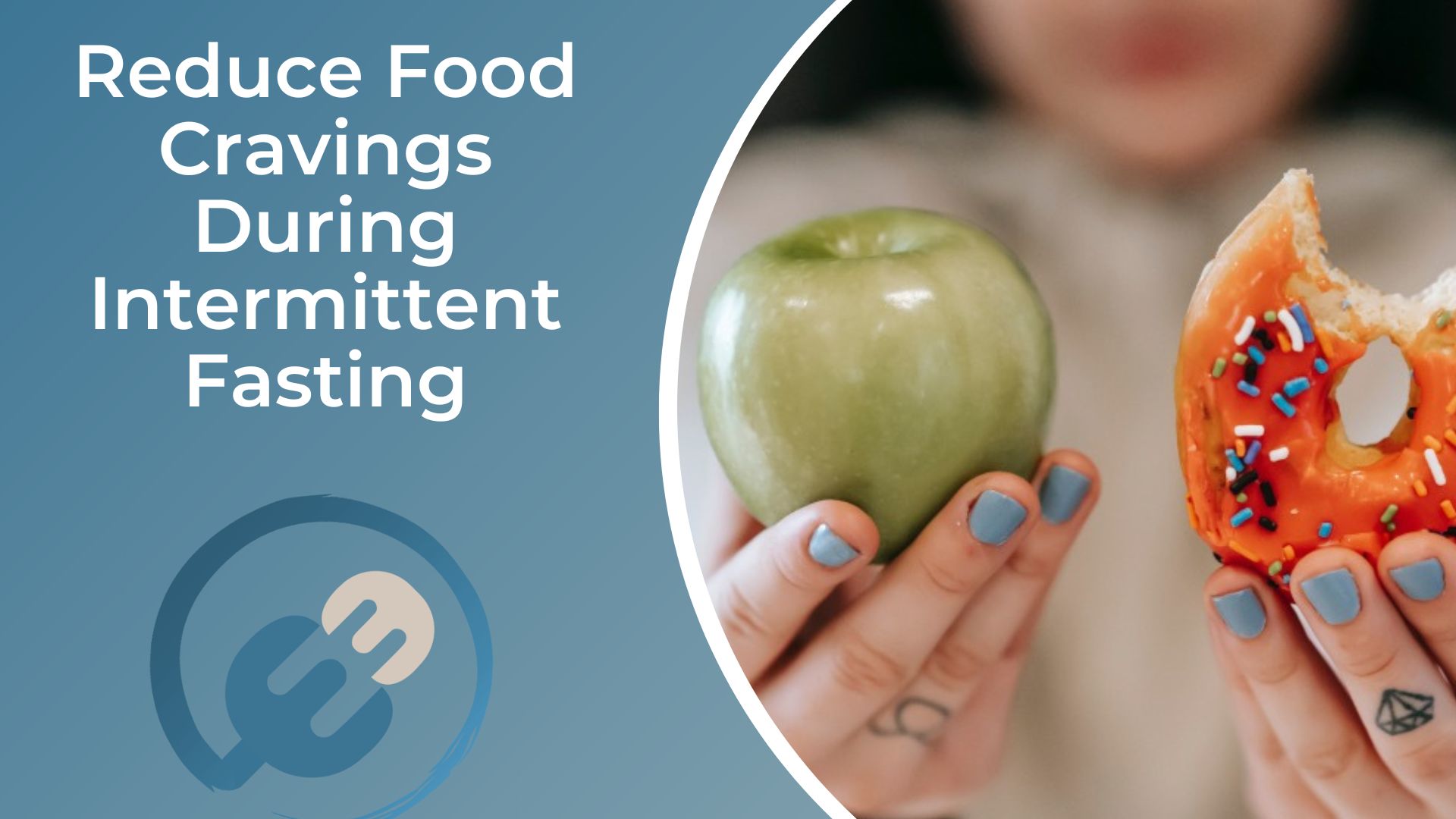
Intermittent fasting, or IF for short, involves limiting your food intake to a window of time each day. Most students who do intermittent fasting do it with a 16:8 window, where you would eat only during an 8-hour time frame. Intermittent fasting provides many advantages, including weight loss, reduced cholesterol, and better sleep.
During intermittent fasting, it’s not uncommon to experience overwhelming feelings of wanting to eat. But are these cravings genuine hunger, or is it something else? Here is some helpful information about food cravings and tips to help you reduce them while intermittent fasting.
What Causes Food Cravings?
Natural hunger is gradual, so in many cases, when you experience an overwhelming craving, it’s not linked to actual physical hunger. But your body may experience intense signals of wanting things like sugar or salty foods. Why is this?
Your blood sugar levels affect your hypothalamus, a part of the brain that regulates the release of hormones. When your glucose levels drop below the average your body is used to, your brain signals that it needs some energy. Usually, it’s a false signal because your body has plenty of energy (body fat).
Giving in to food cravings can often lead to health issues. Unbalanced diets typically lack essential nutrients that your body needs and those needs turn into cravings. When your blood sugar levels rise, your pancreas produces insulin to absorb it. Your pancreas may overreact and create too much insulin with carb-rich meals, causing you to feel cravings.
Autophagy promotes numerous health benefits where cells break down and recycle to promote essential cell functions. When fasting for autophagy, you have to fast for 24 to 48 hours, which can make you feel weak, fatigued, and, yes, experience a lot of food cravings.
So what can you do to combat these food cravings while intermittent fasting? Here are some of the best tips to ensure that you stick to your goals.
Tips to Reduce Food Cravings While in IF
There are numerous steps you can take to work on your cravings. Here are some of the best tips you can instill during intermittent fasting to work on reducing your need to eat.
Eat More Protein
Paying attention to the nutrients you get when you eat can help you feel fuller and work against those food cravings. Proteins are essential in curbing your appetite because they help to keep you full longer.
Getting 20 to 30% of your total calorie intake from protein provides health benefits. It helps stimulate weight loss because you’ll eat fewer calories, boosts your metabolism, and strengthens your bones.
Increase Your Water Intake
Hydration is another critical component to helping curb your food cravings. Water regulates your digestion because it helps absorb your foods better, and in many instances, when you think you’re feeling hungry, your body is just short of water, and you need to drink.
Students who drink more water tend to feel fuller more quickly during meals, so they don’t feel as hungry. Most health experts and nutritionists suggest drinking half your body weight in ounces. For example, if you weigh 150 lbs, you should drink 75 ounces of water daily.
Diet High in Fiber
Fiber is another nutrient to help with your digestion. Eating fiber-rich foods ensures you’ll be more regular, and things will keep running smoothly. In addition, it will better maintain your blood sugar levels, and fiber supplies nutrition to the good bacteria in your gut. Absorption of nutrients aids in helping you feel less hungry.
Be More Mindful
Keeping yourself busy is an excellent way to combat your food cravings mindfully. Consider if you’re bored or don’t have anything to do for a time – do you find yourself giving into cravings or reaching for snacks? Mindfulness is key to acknowledging when your body is signaling you and actively occupying your time with something else.
Consider taking up a new hobby to help you practice more mindfulness, such as yoga, meditation, or even something simpler, like writing in a journal or reading a book. While fasting intermittently, having a plan and working to keep busy by doing other things instead of thinking about food can be a good distraction.
Eat More Slowly
Your mind doesn’t catch up immediately to tell your stomach you’re full when you eat fast. Practice trying to chew and eat your food more slowly.
It’s easier to eat more when you’re giving in to cravings. Take a moment to enjoy and savor each bite as you eat, but also it will help you curb how much you’re eating because your mind can transfer that signal that “you’re full” faster.
Track Your Food
Having a plan for your eating habits will go a long way to helping you achieve your health and weight loss goals. One way you can do this while in IF is through meal prep and a tracking app for your food. Following a balanced diet with the help of a dietitian or nutritionist can help be sure you obtain the right foods for your body.
When you track your food, you become more conscious about getting the nutrients your body needs. Be sure to include proteins, complex carbohydrates, and fats to give your body energy and help kick cravings. Tracking also sets you up for your non-fasting period and keeps you within your calorie goals.
Get Enough Sleep
One last thing to help you with your cravings is your sleep patterns. Losing sleep affects your hunger and makes you feel hungry, making it twice as hard for your body to burn fat during your fasting periods.
Sleep also plays an essential role in your circadian rhythms. These rhythms help regulate hormones for metabolism and appetite, so getting proper sleep is vital in helping reduce your cravings.
Health With Intermittent Fasting
It is imperative that you understand the difference between fasting and starving. Intermittent fasting requires a lot of self-control when it comes to eating. You don’t want to starve yourself; your body needs food. Eating healthy foods during IF periods helps improve your overall health.
Cravings can be challenging when you’re on intermittent fasting, but with these helpful tips and understanding where the cravings come from, you’ll be better equipped to stop the cravings from causing you to overeat or binge.


